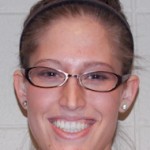Many college students generally struggle to keep a healthy diet with their on-the-go lifestyles.
The UW-Whitewater Dining Services in partnership with Chartwells will continue to improve its services to encourage healthy eating for students on campus.
Chartwells recently added a nutritional kiosk in Esker Dining Hall, partnering with 411fit.com.
Marketing director for UW-Whitewater Dining Services in partnership with Chartwells, Ann Rakowiecki, said she encourages students who eat in the dining halls on campus to check out the nutrition facts in the food by using the new kiosk.
Students can use this touch screen kiosk to scroll through the food served at the dining hall. It shows nutrition facts and allows students to leave comments.

The kiosk is not limited to only the food served at Esker Dining Hall, but also to other dining facilities on campus such as Uno Due Go, UC Graham Street Café, Library Food for Thought and others, Rakowiecki said.
Chartwells has also partnered with 411fit.com. Students can create an account at this website and find out personalized health tips based on individual needs.
This website allows students to create their own healthy eating plan and choose goals like building lean muscle, maintaining weight or losing weight.
“This program helps students to eat right and lose weight if they desire to in a healthy way and not a drastic way,” Rakowiecki said.
Registered dietitian for UW-Whitewater Dining Services in partnership with Chartwells Jessica Schultz said she likes the idea that the website allows students to figure out a plan to stay healthy.
“It helps you learn how to add in exercise with healthy eating,” Schultz said. “Healthy eating doesn’t mean eating salads everyday it’s learning to incorporate every food in your diet.”
For students who may not dine on campus, Schultz offered some tips for easy healthy eating and said, “Anytime students are on the go, it’s important that they still think fresh,” Schultz said. “This means that they can grab an apple or banana and pair it with protein like peanut butter.”
The recommended serving of fruits and vegetables a day is five to nine cups, Schultz said. She said that it is important for students to educate themselves on what a proper serving size is so they can keep track of how many servings they are getting per day.

“Any lean proteins, like nuts, will keep you the fullest the longest,” Schultz said. “Any snack with carbs and protein will give your brain fuel for in between classes as well as sustain you so you are not getting hungry in the middle of class.”
Although energy drinks may keep you awake, Schultz recommends that students only drink these in moderation.
For students who do not like milk, a good substitute to make sure they are consuming calcium would be to eat broccoli, spinach or drink soymilk and fortified orange juice. Schultz said she emphasizes the importance of the dining facilities to meet the needs of students who have certain restrictions in their diets due to allergies or medical issues.
“We are always looking to update food items for students who may need certain items in their diets,” Schultz said.
Esker Dining Hall has a gluten-free area for students who may have Celiac disease and can only eat certain foods. There are also plenty of vegetarian options on the menu for students who prefer no meat.
“The changes that the campus is making to encourage healthier eating will be beneficial to those students who take advantage of the programs we have to offer,” Schultz said.
Another way students can keep up with menus on campus is to download the app for smart phones called “App On Campus.” This app allows students to view upcoming menu items for different dining facilities and check out the nutritional facts in the food.
Promoting healthy eating campus wide is an important part to Rakowiecki and Schultz.
“Small changes in your diet make long term differences,” Schultz said.

